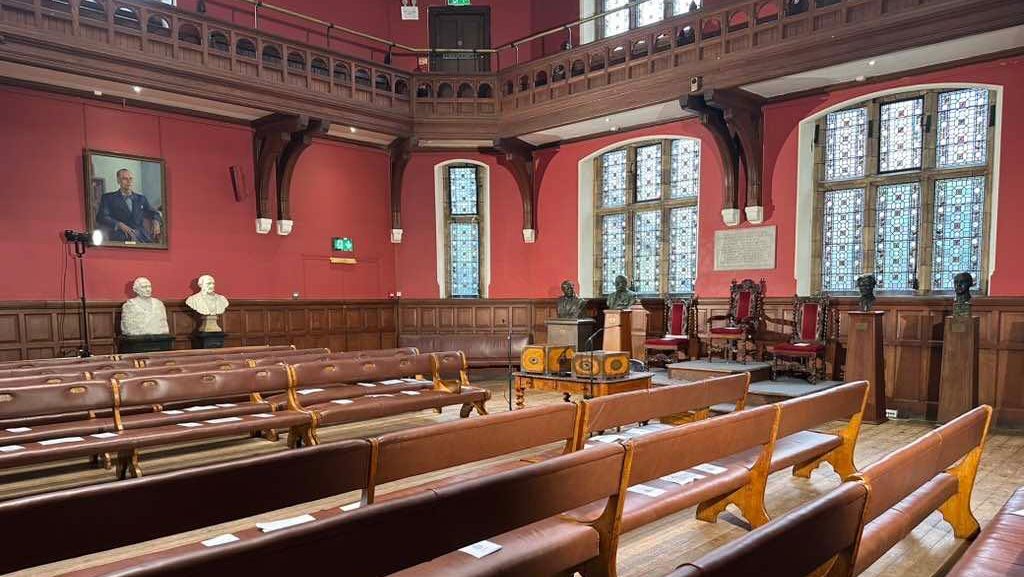The Oxford Union’s Standing Committee (TSC) has passed an indicative motion of no confidence in the President, Anita Okunde. In a meeting on Saturday morning, the Union’s governing body voted 12 votes to 5 in favour of no confidence, with one spoilt ballot.
Ex-President Israr Khan brought the motion after he was banned from the buildings by the President. This ban was later overturned, but the no confidence motion was brought on the basis that the President had misused her powers.
The move to bring a no confidence motion has prompted criticism from other members of the wider committee, with one telling Cherwell: “It’s an open display of bullying and cruelty. Those responsible, and those without the balls to call it out, should be ashamed.”
Israr Khan told Cherwell: “This President is acting like an authoritarian ruler, not the head of a democratic society. She has bent the rules to suit herself and her friends, silencing voices that challenge her, and abusing her powers to manipulate outcomes. I raised genuine concerns about important meetings being held at odd hours – early morning on a weekend – but instead of addressing those concerns, she chose to exclude me from the Union entirely.
He added: “When I was President, I had the same powers, but I never used them to silence my opponents, because I believe in fairness and democracy, not authoritarian control. The Union deserves better than this. We need a President who listens, not one who silences; who acts for the good of the Society, not just for herself and her friends.”
A public letter signed by 11 members of TSC, including the President-Elect Moosa Harraj, Ex-President Ebrahim Osman Mowafy, and the Treasurer Rosalie Chapman echoed Khan’s points. They called for a written apology from the President, a review of her use of disciplinary powers, a “reaffirmation of the impartial application of procedural rules,” and for the President to resign.
Other voices on TSC have opposed the move. An Ex-President, who wished to remain anonymous, told Cherwell: “The President has repeatedly been subjected to disrespectful, misogynistic behaviour at TSC; this performative ‘No Confidence’ motion is yet another attempt to intimidate her after she took action against the Ex-President [Israr Khan].
“Claims that TSC members feel “unsafe” are a perfect example of this ridiculous political charade – Union member should feel highly concerned about the current state of the governing body.”
Chris Collins, an Ex-Secretary, said: “The first black woman ever to be President of the Oxford Union was smeared, belittled, and bullied for over three hours.”
In response to these claims, Khan told Cherwell: “These are not baseless accusations – they are part of a pattern of behaviour where power is abused, rules are bent for friends, and dissenting voices are silenced. The no-confidence motion was not about “intimidating” the President – it was about holding her to account for these very actions.”
Khan was briefly banned from Union premises under Rule 51(a), which states that “The President … shall have the power to refuse entry into the Society’s Buildings to any person if they … are reasonably satisfied that such measures are necessary for the good order of the Society’s Buildings or the best interests of the Society.”
The motion follows several weeks of chaotic TSC meetings in which the validity of various motions have been questioned. Ongoing debates around potential rules reform have continued to cause division, with allegations of mistrust on both sides.
Under the Union’s rules, the President can only be removed from their position if a motion of no confidence is signed by 150 members, following which a poll occurs of all members.
The Oxford Union was approached for comment.


